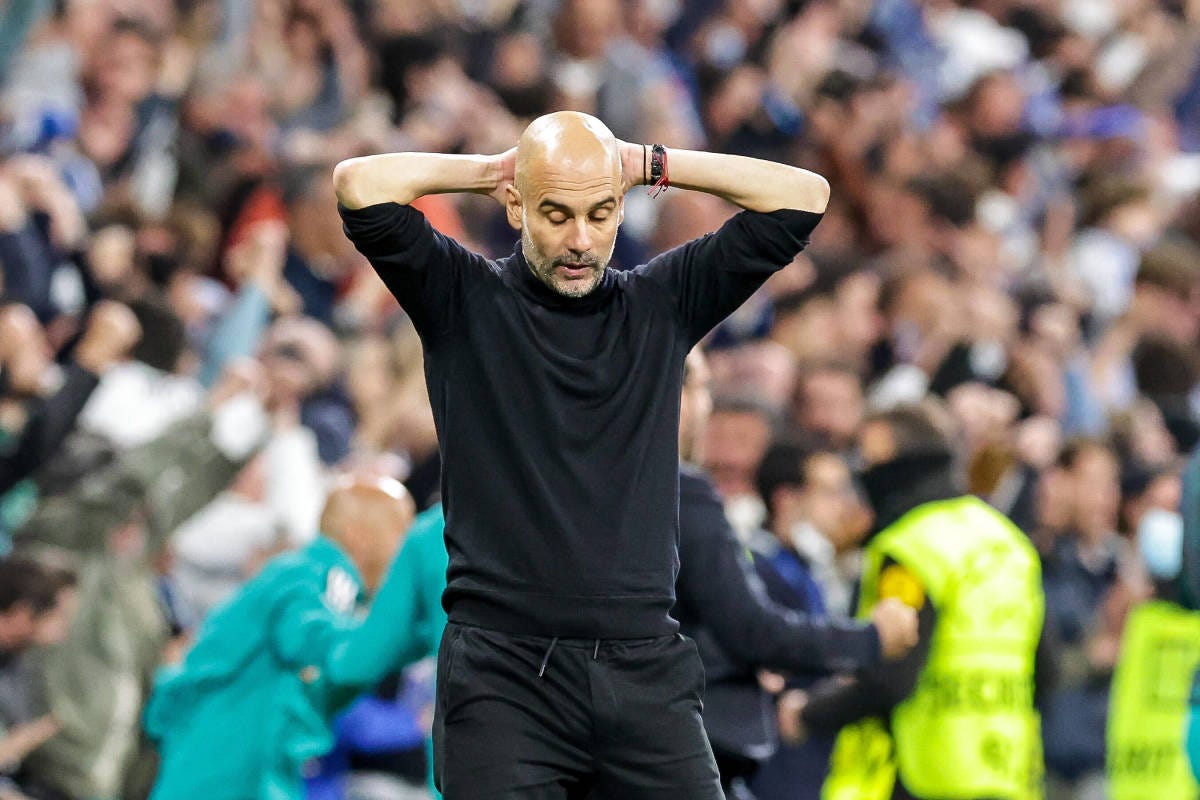Guardiola against Real Madrid: the autopsy
It really did happen again.
Here’s a question for any professional commentators on live TV or radio: when is it safe to call it?
“It’s going to be another all-English final”, BT Sport’s lead commentator Darren Fletcher declared at almost exactly the 88th minute. “Fourth final as a coach for Pep Guardiola. And I’ve gotta say, Steve [McManaman], that City and Liverpool have looked like Europe’s two best teams this season. And I think in Paris in 24 nights’ time, it will be the perfect end to what’s been a wonderful season for both of them. It kind of feels like that’s the way it should finish.”
And then, as a mediocre Hollywood screenwriter asked by an executive to provide the cadence of a joke without taking any creative risks might say, that just happened.
(While we’re here, I think BT have misjudged the tone of both these semifinals. There was a time when the vast majority watching in the UK would want the British team to go through. That was not the case this week with either Liverpool or Man City. A more neutral lens would not go amiss.)
We all know the story by now, after last winning it in 2011, Pep Guardiola has tinkered and tinkered and tinkered in the knockout stages. He famously decided to follow the players’ instincts in 2014, to disastrous results, and has since been resolute in going with his own gut.
The aim was almost always to prevent dangerous counterattacks. Guardiola always seems to worry about how his side will do in that phase of the game against really high-quality opposition. He couldn’t trust the systems he had in place on those big occasions and felt he had to change things.
Until he didn’t. In last year’s semi-final against Paris Saint-Germain, it seemed like he finally had a team he could trust completely on such an occasion. As I wrote at the time,
City have become the slowest team in the Premier League. Their sequences of possession are longer than anyone else, and those sequences are slower at moving the ball forward than every other team. In any other context, you’d assume those stats were highly critical, but this has been extraordinarily effective. In the pandemic era, Guardiola has found a way to kill off the counter attack: make everyone play at walking pace.
At the same time, he’s turned the high pressing down. In terms of passes per defensive action, essentially how many passes you let the opponent make before trying to win the ball back, City are now only the seventh most aggressive in the Premier League, after leading it as recently as 2018/19. This has been a gradual scaling back, generally doing it a little less each year, and this season feels like the apex. What we have is a team that can defend quite differently. In the second leg against PSG, you had Ruben Dias making block after block as City dug deep to defend with their hearts on their sleeves. You just wouldn’t have seen that with previous aggressive high pressing Guardiola teams.
All of this has been why City have defended so well this season. They’ve cut out those terrible high-quality chances conceded when they would just get ripped open on the break. And with Guardiola having mastered the defensive control to prevent those transitions, it wasn’t a surprise at all to see him trust his team and avoid making wholesale changes.
Through more patient build-up play and slightly less aggressive pressing, Guardiola had found a way to stop teams countering him. He could trust his side to go out there, play in their normal way, and not get done on the transition.
Then, of course, he still decided to change everything in the final and lost, conceding to a goal from a fast transition. Baby steps, Pep.
This season, he’s turned the press back up just a little bit. He’s allowing about one fewer opposition pass before City attempt to win the ball back.1 The attack hasn’t changed much in the metric, but they’re arguably more flexible. He has the option of using players for greater control or greater speed in attack depending on the situation.
In the first leg against Real Madrid last week, Guardiola sprung what in hindsight is a surprise and picked a team suited to attack at pace. The back four was really decided for him. Kyle Walker wasn’t fit enough to play, while João Cancelo was suspended. This meant John Stones had to be rushed back from injury to start at right back. He couldn’t play much more than 35 minutes in the end, and Fernandinho had to replace him. Rúben Dias and Aymeric Laporte started together at centre back. With the right back playing more defensively, this meant the left back had to push up to become an auxiliary midfielder. This was a perfect job for Oleksandr Zinchenko.


